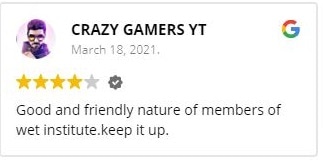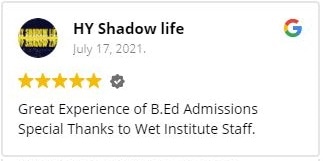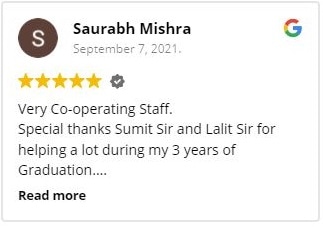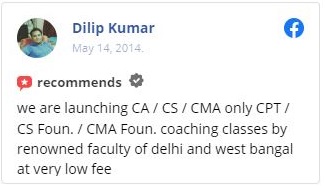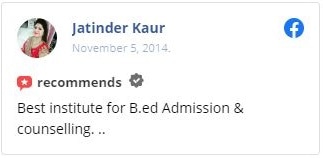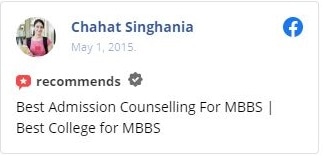BDS Admission 2026
BDS (Bachelor of Dental Surgery) Admission from Top Best Universities: Admission Process, Eligibility Criteria, Syllabus, Scope, Fees, and Career Opportunities.
BDS (Bachelor of Dental Surgery): Overview
The Bachelor of Dental Surgery (BDS) is a comprehensive undergraduate program that prepares students for a career in dentistry. Typically spanning five years, including a year of internship, the BDS program focuses on both theoretical knowledge and practical skills essential for diagnosing and treating dental issues.
Program Structure
1. Curriculum:
- Basic Medical Sciences: Anatomy, physiology, biochemistry, and pharmacology relevant to dental practice.
- Dental Sciences: Subjects such as oral pathology, oral medicine, and dental materials.
- Clinical Practice: Hands-on training in areas like restorative dentistry, orthodontics, periodontics, and oral surgery.
2. Practical Training: Students gain extensive clinical experience through supervised internships, allowing them to apply theoretical knowledge in real-world settings. They work with patients, perform dental procedures, and learn patient management.
BDS Career Opportunities
- General dentist: providing routine dental care, diagnosis, and treatment.
- Specialist Roles: Further studies can lead to specializations in orthodontics, periodontics, oral surgery, and more.
- Academic Positions: Teaching roles in dental colleges and institutions.
- Research and Development: Engaging in dental research or product development in the healthcare sector.
BDS (Bachelor of Dental Surgery) Admission: Eligibility Criteria
The admission process for the Bachelor of Dental Surgery (BDS) program requires candidates to meet specific eligibility criteria. These requirements ensure that students have the foundational knowledge and skills necessary for the rigors of dental education.
1. Educational Qualification
- Candidates must have completed their 10+2 education (or equivalent) from a recognized board.
- They should have studied Physics, Chemistry, and Biology as core subjects, along with English.
2. Minimum Percentage
- Most universities require a minimum aggregate percentage in the qualifying exam, typically around 50% for general category students. Reserved category candidates may have a lower percentage requirement (usually around 40-45%).
3. Entrance Examinations
- Candidates must qualify for relevant entrance examinations, which may include:
- NEET (National Eligibility cum Entrance Test) in India, which is mandatory for admission to most dental colleges.
- Some universities may also conduct their own entrance tests.
4. Age Limit
- The minimum age for admission is generally 17 years at the time of admission, and there is usually no strict upper age limit.
5. Domicile Requirements
- Some institutions may have specific domicile criteria, giving preference to local students. This may require proof of residency.
6. Additional Documents
- Candidates may be required to submit documents such as mark sheets, certificates, and identification proof during the admission process.b
BDS (Bachelor of Dental Surgery): Admission Process from Top Universities
The admission process for the Bachelor of Dental Surgery (BDS) program varies among universities, but generally follows a structured approach. Here’s an overview of the common steps involved:
1. Eligibility Criteria
- Candidates must have completed their 10+2 education with Physics, Chemistry, and Biology as core subjects, along with a minimum aggregate percentage (usually around 50%).
- Some universities may also accept candidates with a background in Health Sciences.
2. Entrance Exams
- Most top universities require candidates to qualify for entrance exams. Common exams include:
- NEET (National Eligibility cum Entrance Test) in India
- University-specific entrance exams
- Performance in these exams is critical for securing admission.
3. Application Form
- After qualifying for the entrance exam, candidates need to fill out the application form for the specific universities they wish to apply to. This is usually done online and requires personal, academic, and examination details.
4. Merit List
- Based on the entrance exam scores and overall academic performance, universities will publish a merit list of shortlisted candidates.
5. Counseling Process
- Shortlisted candidates are called for a counseling session, where they can choose their preferred college and course based on their ranking.
6. Document Verification
- Candidates must submit necessary documents for verification, including mark sheets, identity proof, and other relevant certificates.
7. Admission Fee Payment
- Once admitted, candidates must pay the required admission fees to confirm their seat.
BDS (Bachelor of Dental Surgery): Syllabus Overview
First Year
1. Basic Medical Sciences
- Anatomy
- Physiology
- Biochemistry
2. Dental Materials
Second Year
1. Dental Sciences
- Oral Pathology
- Pharmacolog
2. General Medicine and Surgery
Third Year
1. Clinical Dentistry
- Operative Dentistry
- Prosthodontics
2. Orthodontics and Pedodontics
Fourth Year
1. Advanced Clinical Practice
- Oral Surgery
- Periodontology
2. Community Dentistry
Fifth Year
1. Clinical Training
2. Research Project
General Human Anatomy including Embryology and Histology |
General Human Physiology and Biochemistry, Nutrition and Dietetics |
Dental Anatomy, embryology, and Oral Histology |
Dental Materials |
Preclinical Prosthodontics and Crown and Bridge |
General Pathology and Microbiology |
General and Dental Pharmacology and Therapeutics |
Preclinical Conservative Dentistry |
Preclinical Prosthodontics and Crown & Bridge |
Oral Pathology & Oral Microbiology |
General Medicine |
General Surgery |
Oral Pathology & Microbiology |
Conservative Dentistry And Endodontic |
Oral And Maxillofacial Surgery |
Oral Medicine And Radiology |
Orthodontics & Dentofacial Orthopaedics |
Pediatric & Preventive Dentistry |
Orthodontics and Dentofacial Orthopaedics |
Oral Medicine and Radiology |
Pediatric and Preventive Dentistry |
Periodontology |
Oral and Maxillofacial Surgery |
Prosthodontics and Crown & Bridge |
Conservative Dentistry And Endodontics |
Conservative Dentistry And Endodontics |
BDS (Bachelor of Dental Surgery): Scope and Career Opportunities
Scope of BDS
Increasing Demand: With rising awareness of oral health, the need for dental services has expanded, leading to a growing number of dental clinics and hospitals.
Diverse Career Paths: Graduates can explore various specializations within dentistry, allowing for a tailored career path based on interests.
Public Health Initiatives: There is an increasing focus on community dental health, creating opportunities for BDS graduates in public health organizations and NGOs.
Technological Advancements: Innovations in dental technology and practices provide new avenues for dentists to enhance their skills and services.
BDS Career Opportunities
General Dentist: Providing routine dental care, including examinations, cleanings, fillings, and preventive care.
Dental Specialist: Pursuing further education to specialize in areas such as:
- Orthodontics: Focused on correcting misaligned teeth and jaws.
- Periodontics: Specializing in gum diseases and treatments.
- Oral and Maxillofacial Surgery: Performing surgical procedures related to the mouth, jaw, and face.
- Pediatric Dentistry: Caring for children’s dental needs.
Academic Roles: Teaching positions in dental schools and colleges, contributing to the education of future dental professionals.
Research and Development: Engaging in dental research to innovate new treatments, materials, and technologies.
Public Health Dentistry: Working in government health departments, NGOs, or community health initiatives focused on improving oral health at the population level.
Dental Consultant: Offering expert advice to clinics, hospitals, or organizations on dental practices and patient care.
Private Practice: Establishing a private dental practice or joining a group practice to provide specialized services.
BDS (Bachelor of Dental Surgery): Admission Fees and Duration
The Bachelor of Dental Surgery (BDS) program is a rigorous course designed to prepare students for a career in dentistry. Understanding the admission process, fees, and duration is essential for prospective students.
BDS || Duration: The BDS program typically lasts five years, which includes:
- Four years of academic study: This covers a comprehensive curriculum involving theoretical knowledge, practical skills, and clinical training.
- One year of mandatory internship: This provides hands-on experience in various dental practices under supervision.
BDS|| Admission Fees
The admission fees for the BDS program can vary significantly based on the institution (government vs. private), location, and facilities offered. Here’s a general overview of potential costs:
Tuition Fees:
- Annual tuition fees usually range from ₹1,00,000 to ₹5,00,000. Government colleges tend to be on the lower end, while private institutions may charge higher fees.
- Annual tuition fees usually range from ₹1,00,000 to ₹5,00,000. Government colleges tend to be on the lower end, while private institutions may charge higher fees.
Additional Admission Costs:
- This may include application fees, registration fees, and other administrative charges, which can range from ₹5,000 to ₹20,000.
- This may include application fees, registration fees, and other administrative charges, which can range from ₹5,000 to ₹20,000.
Hostel Fees:
- For students opting for on-campus accommodation, hostel fees can vary from ₹20,000 to ₹1,00,000 per year, depending on the amenities provided.
- For students opting for on-campus accommodation, hostel fees can vary from ₹20,000 to ₹1,00,000 per year, depending on the amenities provided.
Miscellaneous Expenses:
- Students should also budget for books, uniforms, lab fees, and personal expenses, which can add another ₹10,000 to ₹30,000 per year.

